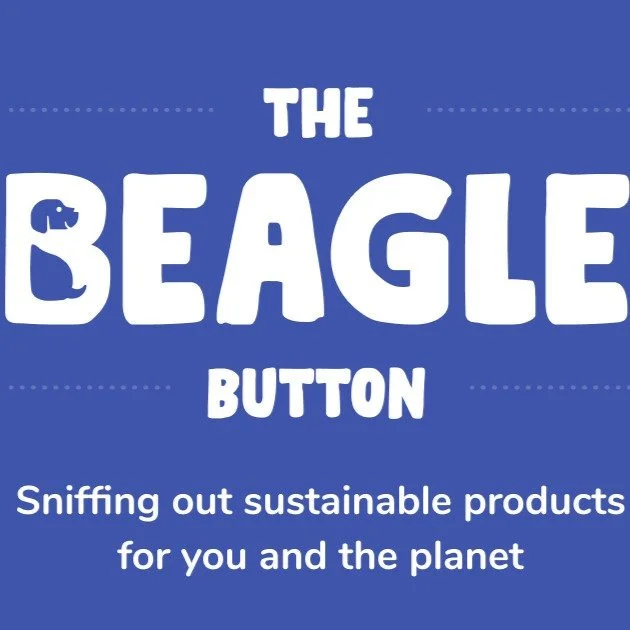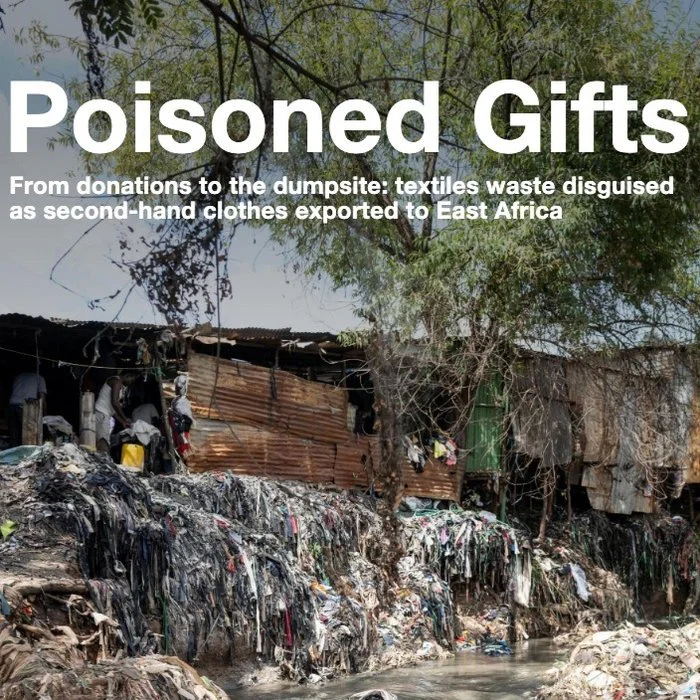The Titian Thread
The month in fashion, condensed.
Hi ,
In March, a survey by Retail Week asked 1000 people to name their top five sustainable brands. They chose H&M, Nike, Primark, M&S and Amazon. My first thought was: it's stunning how quickly and convincingly corporations have co-opted the sustainable fashion movement.
In just a few years, this movement has been swallowed up by big brands until it's basically impossible to recognise the good from the greenwashing. It's especially obvious around Earth Day, which started in the 70s as a day of protest but is now used as a good excuse to flog "green" capsule collections. Funny how that happened!
Frankly, it's an insult to the small ethical businesses that have been creating fair fashion long before it was cool and to the women who make clothing for these brands but still aren't paid enough to live. While it can be tempting to direct incredulity or judgement towards people who think Primark is sustainable, I'd rather focus on how and why these corporations are able to tell their customers this lie without any repercussions.
Do I think big businesses should be part of this movement? Of course. All businesses, especially corporations, need to be held responsible for their environmental and social footprint. But currently, they aren't doing much more than making empty commitments, throwing out the odd linen-heavy sustainable clothing line, and hoping we don't notice when they promise shareholders that they'll double their sales by 2030.
Here are three tiny acts of rebellion against big business: Shop small where possible. Mutter "Fuck Fast Fashion" under your breath every time you walk past a Zara store. Think of yourself as a citizen, not a consumer — you weren't put on earth to buy shit.
This month, I have no new stories of my own to share! All of my writing efforts have been channelled into one big project I've been working on for the last few months, which I can't wait to share with you in June.
As always, I'd love to hear from you. You can reach me via the reply button at the bottom of the newsletter.
Until next month,
Meg X
Stories I didn’t write
Am I an Ethical-Fashion Mean Girl? by Marielle Elizabeth for Vogue. I loved this honest op-ed from an ethical fashion influencer who realised that taking the moral high-ground to fast-fashion influencers could actually be harming the slow fashion movement and alienating fast-fashion shoppers.
Why ‘Eco-Conscious’ Fashion Brands Can Continue To Increase Emissions by Rachel Donald for the Guardian. Turns out, there are some pretty insane loopholes that help fashion brands disguise their carbon footprints.
How One Ukrainian Designer Is Turning Discarded Clothing Into a Symbol of Hope by Liana Satenstein for Vogue. "Ukraine is about destruction and reconstruction,” Yasia Khomenko says. “For so many years our culture was destroyed but we rise again and again. That is my whole practice.”
68% Of U.S Execs Admit Their Companies Are Guilty Of Greenwashing by Adele Peters for Fast Company. And yet, in this anonymous survey, 80% of executives gave their companies an “above-average” rating for environmental sustainability. Make it make sense.
Right Back at You: the Ugandan Designer Returning the West’s Cast-Offs by Alice McCool for the Guardian. “I see these clothes, and they offend me. I see white shirts with sweat stains and torn colours, and I feel oppressed,” says Bobby Kolade. “What does it say about whoever’s donating those clothes to us? And what does it say about our position in the world? It’s rude, you know? It’s really rude.”
An Exhaustive Guide to Sustainable Shopping by Katja Vujić for the Cut. This really is exhaustive. A great sustainable fashion 101!
To Make Our Wardrobes Sustainable, We Must Cut How Many New Clothes We Buy By 75% by Samantha Sharpe, Monique Retamal and Taylor Brydges for the Conversation. Buying better is not going to fix fashion's impact on the environment. But do you think you could buy 75% less clothing each year?
Fashion’s Gender-based Violence Crisis: Union Leaders Share How They’re Fighting To End Harassment by Lizzie Rivera for Fashion Revolution. During Fashion Revolution Week, five female union leaders from India, Pakistan, Cambodia, Indonesia and Sri Lanka shared their stories of working in the garment manufacturing industry.
Degrowth: The Future Fashion Could Choose by Faith Robinson for Fashion For Good. Here for the discourse around degrowth! Faith does a great job of explaining this economic model.
The To-Do List
I've been using the Beta testing version of Beagle Button for a year or so, and it's now fully available on Chrome. This free browser extension basically searches for sustainable alternatives while you shop, so you can make more eco-friendly purchases without any of the effort!
Greenpeace has just released this report on the impacts of the secondhand clothing market on countries like Kenya and Tanzania, which have become dumping grounds for the world's clothing "donations". Greenpeace uncovers a lot of potential solutions, both on-the-ground and system-wide, that could solve the problem.
This Conscious Chatter podcast episode is super interesting. Ngozi Okaro, the founder and executive director of Custom Collaborative, is working with no-and-low-income women to train, upskill and find employment in the sustainable fashion space. This conversation covers Ngozi's journey with the Custom Collaborative and the benefits of worker-owned cooperatives in fashion.


